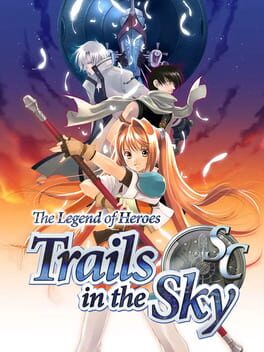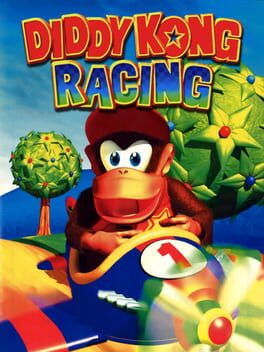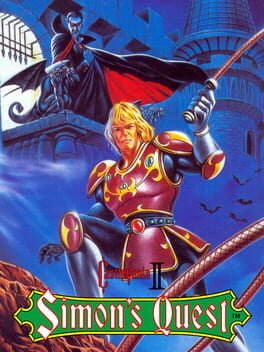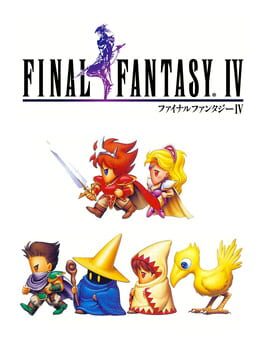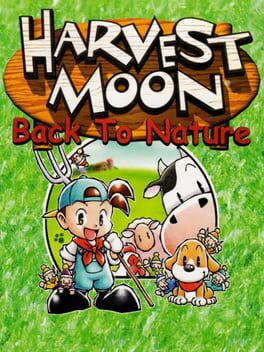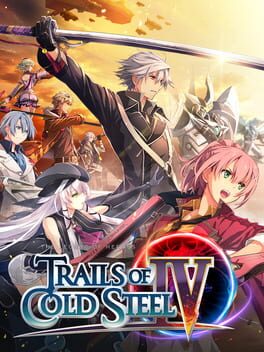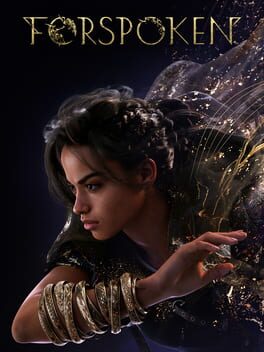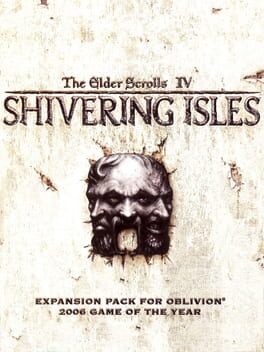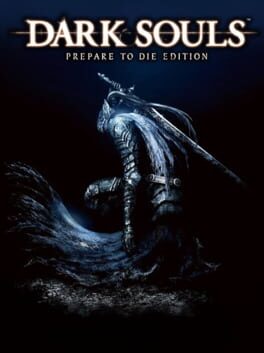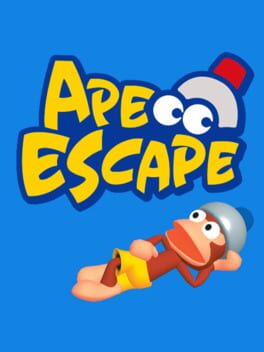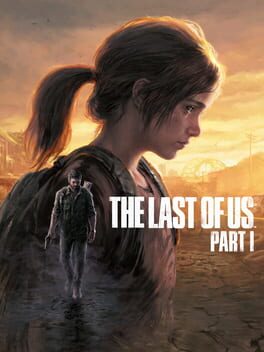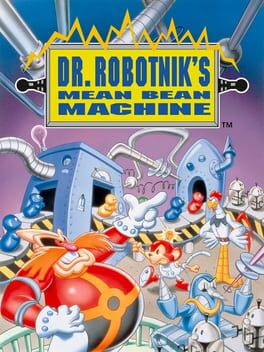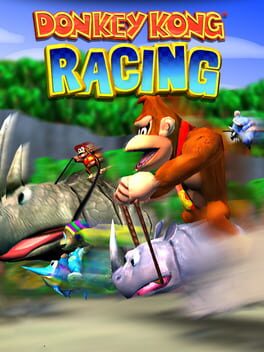97 Reviews liked by Rola
Diddy Kong Racing
1997
Vampire Survivors
2021
Perhaps it is appropriate that Simon’s Quest is a game that is eternally losing. As one of those sequels to a hugely popular, foundational NES game that against common wisdom broke out in an exciting new direction rather than building upon the strongly laid groundwork of its predecessor, it’s been arguably doomed from the start. While reception upon release was largely positive, it fit into the landscape of its day a lot better than it does a retrospective one, and when it became one of the earliest internet punching bags its fate was truly sealed. Even consdering the sort of mild critical evaluation these sorts of games tend to get today, Castlevania II’s seems more muted, probably due to its low excitement factor, low level of challenge but high level of Annoying Tedious Bullshit, and most infamously its pretty-bad-even-by-the-standards-of-the-time localization that makes an already-cryptic game that much more obtuse to muddle through. I thought this game was solid the first time I played it despite these things, but now that I’m replaying it in the context of its status as a sequel to Castlevania, I think those maligned elements are essential to the powerful ludic experience Simon’s Quest offers that’s by far the most potent of the NES trilogy.
Simon Belmont’s got a problem. In the wake of his duel with Dracula in Castlevania (the game, and also, I guess, the location) things should be good, but instead they seem fucked up! The country is still overrun with monsters who become even more aggressive at night, there are weird cultists everywhere, and Simon himself has been afflicted with some sort of Castlevania III Dracula’s Curse, which is slowly killing him! His, and Transylvania’s, only recourse is for Simon to gather the bits and bobs of Dracula’s corpse that remain - claimed by his followers - resummon the vampire, and settle this thing once and for all, again, in another duel, I guess. I am not super clear on why Dracula isn’t dead or why just killing him again will supposedly work out this time I guess Simon just kinda sucks at his job. He’s a vampire hunter not a demonic progenitor of all evil hunter!
Even accounting for like, Gameboy games and Arcade games and ports and shit, Simon’s Quest is the most different that one of these will be probably until Symphony of the night? It’s an open world structure, essentially, with complete freedom of movement in left or right directions from your starting town, gated only by your skill with your whip and your ability to traverse the environment, which expands with your arsenal of skills, magic, and equipment. There are RPG elements that dictate your health pool, hearts act as a currency and subweapons are permanent zelda-like equippables that you select from the pause menu rather than semi-random powerups. Infamously there is a day/night cycle, and night time is significantly more dangerous, doubling enemy power and closing off your access to everyone in all towns, which includes shops and the churches which are the only means of healing in the game. The goal is to discover and explore five haunted mansions, claiming a piece of Dracula at the end of each, gruesome shit like his rib bone or his eyeball, so that you can reenter Castlevania and fuck him up.
What makes Simon’s Quest feel special is the relentless tone the game strikes via all of its combined elements. There is so much less color to the world now than there was in Castlevania. That’s funny, isn’t it? You were fighting for humanity at the gates of hell itself in that game, and surrounded by lush color at all times. Bright oranges, deep greens and blues and reds. Even the stones underground stood strongly contrasted to their waterways, the prison tower vibrated with supernatural malice. In the hills of cursed Transylvania things are brown and gray and earthy but not in a life-supporting way. They are dull, they look faded. The most vibrant color you see in the game is the toxic purple of the corrupted, poisonous marshes that sometimes there is no choice but for Simon to trudge through, one more self-inflicted pain to suffer in his quest not to triumph but to find any ending at all. The ending drives home that Simon's quest is leading him to finality rather than victory and with that in mind every step of the game leads morosely to that thematic endpoint.
Because the land is not the only thing that is cursed – Simon himself suffers now, and the game works to make you feel it. The would-be triumphant hero is mistrusted and feared by the townspeople. Sometimes they lie to him outright and that’s occasionally true even in the original text. People tell him to leave town, he’s scaring people. The single person living alone in the dilapidated castle town outside the ruins of Castlevania beckons him to stay there forever. He is like her, and he belongs there. She can tell. YOU can tell. Despite the fact that his sprite is the same size and nearly the same shape as it was in the first game, Simon is significantly smaller on the screen. There’s no letterboxing anymore, no points or weapon indicators or lives displayed anywhere; the entire screen is dedicated to the world, and it swallows Simon. He is diminished.
There is not NO challenge to be had here but there is nothing resembling the kinds of screens one might find in Castlevanias 1 or 3. It begins to feel like work, like part of the malaise. There are only two bosses in the game prior to Dracula himself and you only HAVE to fight Camilla! You could just walk right by Death if you really felt like it, but he’s an easy kill considering he rewards the game’s best subweapon. Every mansion otherwise has a unique layout and occasionally a unique and usually frustrating (but sometimes cool, finding fake floors with your holy water is sick fuck you) mechanic to them but they are always long and anti-climactic. When you arrive at Castlevania itself for the final confrontation it’s not the game-long, opulent nightmare from Simon’s first visit. It’s a ruin. It’s a gray husk. You don’t climb the iconic towers to the throne room but descend, going a long, long way down the bones of the castle, meeting no resistance. As much as the Curse continues to ravage Transylvania, it is unchecked and unimpressive in the same way Simon is withering and in the same way that Dracula ultimately is, no more threatening than any other boss in the game. The final kicker is that even despite all of this, it is borderline impossible to get the one ending of three where Simon survives the curse. You can’t do it without finishing the game within seven in-game days, that’s like forty-five minutes, basically speedrun times. And so almost every playthrough of this game ends the way it’s supposed to end, the only way that really fits with the vision of the world that’s presented to you across the more realistic 3 to 5 hours you’re going to spend with it: Simon dead, succumbed to the curse even in victory, maybe remembered for his service to his countrymen, maybe not, ambiguously relieved of duty and ambiguously at rest.
Even if it’s not as much a rip-roaring good time in the arcade sense, Simon’s Quest obviously has the same amount of thought and care put into the things it chooses to emphasize as its predecessor does. It’s a more challenging game, not in difficulty but in engagement, asking for more patience and more active synthesis on the player’s part between elements of play and aesthetic and narrative and tone (something that gaming reviewers famously and formally refused to do until like 2012 MAYBE lol). Once I did meet it on that level I found an experience that was enormously rewarding. I already liked this game quite a bit but now it’s one of my very favorites of its era.
PREVIOUSLY: CASTLEVANIA
NEXT TIME: CASTLEVANIA THE ADVENTURE
Simon Belmont’s got a problem. In the wake of his duel with Dracula in Castlevania (the game, and also, I guess, the location) things should be good, but instead they seem fucked up! The country is still overrun with monsters who become even more aggressive at night, there are weird cultists everywhere, and Simon himself has been afflicted with some sort of Castlevania III Dracula’s Curse, which is slowly killing him! His, and Transylvania’s, only recourse is for Simon to gather the bits and bobs of Dracula’s corpse that remain - claimed by his followers - resummon the vampire, and settle this thing once and for all, again, in another duel, I guess. I am not super clear on why Dracula isn’t dead or why just killing him again will supposedly work out this time I guess Simon just kinda sucks at his job. He’s a vampire hunter not a demonic progenitor of all evil hunter!
Even accounting for like, Gameboy games and Arcade games and ports and shit, Simon’s Quest is the most different that one of these will be probably until Symphony of the night? It’s an open world structure, essentially, with complete freedom of movement in left or right directions from your starting town, gated only by your skill with your whip and your ability to traverse the environment, which expands with your arsenal of skills, magic, and equipment. There are RPG elements that dictate your health pool, hearts act as a currency and subweapons are permanent zelda-like equippables that you select from the pause menu rather than semi-random powerups. Infamously there is a day/night cycle, and night time is significantly more dangerous, doubling enemy power and closing off your access to everyone in all towns, which includes shops and the churches which are the only means of healing in the game. The goal is to discover and explore five haunted mansions, claiming a piece of Dracula at the end of each, gruesome shit like his rib bone or his eyeball, so that you can reenter Castlevania and fuck him up.
What makes Simon’s Quest feel special is the relentless tone the game strikes via all of its combined elements. There is so much less color to the world now than there was in Castlevania. That’s funny, isn’t it? You were fighting for humanity at the gates of hell itself in that game, and surrounded by lush color at all times. Bright oranges, deep greens and blues and reds. Even the stones underground stood strongly contrasted to their waterways, the prison tower vibrated with supernatural malice. In the hills of cursed Transylvania things are brown and gray and earthy but not in a life-supporting way. They are dull, they look faded. The most vibrant color you see in the game is the toxic purple of the corrupted, poisonous marshes that sometimes there is no choice but for Simon to trudge through, one more self-inflicted pain to suffer in his quest not to triumph but to find any ending at all. The ending drives home that Simon's quest is leading him to finality rather than victory and with that in mind every step of the game leads morosely to that thematic endpoint.
Because the land is not the only thing that is cursed – Simon himself suffers now, and the game works to make you feel it. The would-be triumphant hero is mistrusted and feared by the townspeople. Sometimes they lie to him outright and that’s occasionally true even in the original text. People tell him to leave town, he’s scaring people. The single person living alone in the dilapidated castle town outside the ruins of Castlevania beckons him to stay there forever. He is like her, and he belongs there. She can tell. YOU can tell. Despite the fact that his sprite is the same size and nearly the same shape as it was in the first game, Simon is significantly smaller on the screen. There’s no letterboxing anymore, no points or weapon indicators or lives displayed anywhere; the entire screen is dedicated to the world, and it swallows Simon. He is diminished.
There is not NO challenge to be had here but there is nothing resembling the kinds of screens one might find in Castlevanias 1 or 3. It begins to feel like work, like part of the malaise. There are only two bosses in the game prior to Dracula himself and you only HAVE to fight Camilla! You could just walk right by Death if you really felt like it, but he’s an easy kill considering he rewards the game’s best subweapon. Every mansion otherwise has a unique layout and occasionally a unique and usually frustrating (but sometimes cool, finding fake floors with your holy water is sick fuck you) mechanic to them but they are always long and anti-climactic. When you arrive at Castlevania itself for the final confrontation it’s not the game-long, opulent nightmare from Simon’s first visit. It’s a ruin. It’s a gray husk. You don’t climb the iconic towers to the throne room but descend, going a long, long way down the bones of the castle, meeting no resistance. As much as the Curse continues to ravage Transylvania, it is unchecked and unimpressive in the same way Simon is withering and in the same way that Dracula ultimately is, no more threatening than any other boss in the game. The final kicker is that even despite all of this, it is borderline impossible to get the one ending of three where Simon survives the curse. You can’t do it without finishing the game within seven in-game days, that’s like forty-five minutes, basically speedrun times. And so almost every playthrough of this game ends the way it’s supposed to end, the only way that really fits with the vision of the world that’s presented to you across the more realistic 3 to 5 hours you’re going to spend with it: Simon dead, succumbed to the curse even in victory, maybe remembered for his service to his countrymen, maybe not, ambiguously relieved of duty and ambiguously at rest.
Even if it’s not as much a rip-roaring good time in the arcade sense, Simon’s Quest obviously has the same amount of thought and care put into the things it chooses to emphasize as its predecessor does. It’s a more challenging game, not in difficulty but in engagement, asking for more patience and more active synthesis on the player’s part between elements of play and aesthetic and narrative and tone (something that gaming reviewers famously and formally refused to do until like 2012 MAYBE lol). Once I did meet it on that level I found an experience that was enormously rewarding. I already liked this game quite a bit but now it’s one of my very favorites of its era.
PREVIOUSLY: CASTLEVANIA
NEXT TIME: CASTLEVANIA THE ADVENTURE
Final Fantasy IV
1991
Final Fantasy 4 is like a giant breaking through a tiny door: its sheer size makes everyone realise they need to build doors bigger from now on, but that doesn’t make the huge splintery mess left behind not a mess.
This is Final Fantasy’s first and foremost sin: having an ambition too great for the medium in which it then existed. But we are all sinners here, and as far as sins go there are far worse to commit. War crimes, for instance.
I do not mention sin frivolously: it is a quintessential part of Final Fantasy 4’s voluminous themes, themes that strained at the seams of the Super Famicom like the coquettish vest of a French aristocrat after a regular 12 course lunch on the 14th of July 1789. And like that poor powdered wig (soon to be without a head), a revolution was coming.
Again, I do not mention the revolution frivolously, for to understand Final Fantasy 4, one must understand that the text is translated poorly. Localised badly into English from the original French. Yes, the body might be Japanese but the soul of Final Fantasy 4 was penned by a man known affectionately as Victor Motherfucking Hugo.
Les Miserables (The Miserable Ones in its native French) is a novel written by Victor Hugo. The hero of Les Miserables is Jean Valjean, a French commoner who is raised poor and in a brutal environment who, out of obligation to his younger nephews, steals food for them. For this he is sent to jail for seven years. When he attempts to escape, he is given another seven. When he is finally released, he finds his status as a former prisoner prevents him from being hired. He has been given a bad hand, but he worsens it by becoming a wild animal.
It is during this chaos time that our Jean meets the Bishop Myriel, a kindly Christian bishop in a regional town. Valjean is poor and starving and tired, Myriel gives him food and shelter. Valjean repays him by stealing the bishop's silverware. He is caught by the cops immediately, because this is a fictional tale and so cops actually catch thieves.
Valjean lies and says the bishop gave the silverware to him. The cops don't believe him- because he is a criminal and also because it is a very bad lie- but on arrival at the bishop’s doorstep, our dear Myriel not only corroborates Valjean’s story, but also tells him: "you forgot the candlesticks", the most precious part of the collection, which he then gives to Valjean.
This act changes Valjean’s life. Valjean is overcome with shame at his own actions- and this saves him, ennobles him, because it is the chance to do better, to free himself of the world that made him do only evil.
There is a lovely lyric in the musical that goes something like this:
But remember this, my brother
See in this some higher plan,
You must use this precious silver
To become an honest man.
By the witness of the martyrs,
By the passion and the blood,
God has raised you out of Darkness,
I have saved your soul for God!
The song that follows is one in which Valjean, horrified at what he has become, screams his anguish, but then whispers two lines quietly, full of fearful awe:
He told me that I have a soul
How does he know?
What spirit comes to move my life?
Is there another way to go?
Victor Hugo described himself religiously as a deist and freethinker variously, but in this passage he manages to convey, elegantly and movingly, one of the actual powers of faith and religion at their best- the ability to compel one person to see the best in a person who cannot see it in themselves and by making them aware of it, change their lives, transforming them into good people.
And in the Christian tradition (mostly), the act most associated with this is forgiveness- God forgives, Jesus forgives- and that's how Valjean is given his chance.
"I have saved your soul for God!"
But note that this isn't redemption exactly. “You must use this precious silver to become an honest man.”
A common religious tradition is that of the votive offering- an offering given to a divine entity in exchange for a boon. The Romans might sacrifice a calf to Jupiter for success in war. This was a prayer, but also as much a contract as anything, bound by divine law. Here, Myriel makes a votive offering, presenting the precious silverware to God to buy Valjean’s soul out of darkness.
It does not redeem Valjean, however; it does open the door for his redemption. In Myriel’s faith, you must believe in good, but also do good as well.
This is the first, idk, 10% of Les Miserables. It is one of the very earliest story beats. Valjean doesn't change very much after this, but instead the story is seeing how a man raised in darkness can be capable of the greatest light, but also see the man be tested because the world that made him hard and cold still exists.
Valjean's Soliloquy, ends like this:
"I am reaching, but I fall
And the night is closing in
And I stare into the void
To the whirlpool of my sin
I'll escape now from that world
From the world of Jean Valjean
Jean Valjean is nothing now
Another story must begin!"
He breaks from his old life, but that doesn't wipe the slate clean. Now his story is of doing good, and truly redeeming himself. Valjean’s new life is constantly threatened by his pursuer, Javert, who does not believe in human capacity for redemption. Javert’s hounding ruins Valjean’s peace time and time again, but when Valjean turns the tables and has power over Javert, he does not destroy him but instead forgives him. Valjean begins in the darkness, but ends his story in the bishop’s shoes.
Final Fantasy 4 (Final Fantasy 4 in its native French) is the story of hot anime sad boy Cecil Harvey. Cecil Harvey is secretly a fucking moon man- but is raised as an orphan by the king of the land of Baron himself. Through duty to his adoptive father and his adoptive country, becomes a fearsome Dark Knight.
And then he becomes captain of the Red Wings, the world’s most feared military force. That is, Cecil Harvey starts the game as a motherfucking war criminal. This is how we begin our tale. If Final Fantasy 4 isn’t listed in splendid gimmick-turned-kind-of-activist Twitter account “Can you Violate the Geneva Conventions” then it should be.
Our tale begins, specifically, in medias res, with Cecil’s dark sword in the medias of a resisting civilian in the peaceful town of Mysidia, where Cecil and the Red Wings, doing their best 1800s British Safari cosplay, have looted the town for its magic Crystal. On returning to Baron after committing his act, Cecil is overwhelmed with guilt and doubt. By nature he is not a cruel man, but the world he is in has made him do dark things. He may lack Valjean’s poverty and brutal upbringing, but regardless, his soul begins the game in darkness.
Cecil is not unloved. Rosa, his ever faithful and inhumanly pure-hearted white mage beloved, loves him unconditionally. She can see the good in Cecil, because she loves him. Cecil cannot see it because he does not love himself. The opposite, in fact. Rosa’s love is not what Cecil needs right then, although that is not her fault.
When Cecil voices his doubts to his father-king, said father-king does what all father-kings do when their son-war criminal-vassals question them: they trick them into doing a surprise genocide. Cecil is sent to deliver a parcel to the summoner village, where he proceeds to murder a summon (killing the summoner in the process), then unwittingly unleashes the parcel- a magic bomb- on the town, killing all except a young girl. Rydia, whose mother is the summoner Cecil murdered via magic feedback.
Cecil, desperate to do some good, takes Rydia under his wing. Rydia makes sure to wake him every morning by calling him a murderer who should burn in hell. Cecil agrees.
Cecil meets other allies- Tellah, the bitter sage whose daughter dies to big bad Golbez; Edward, the milquetoast poet-prince of a kingdom that gets Red Winged into a crater before their very eyes; Yang, the brave Monk of Fabul. Every time, Cecil fails to help them. At every turn, Cecil is haunted by the person he may have failed the most- Kain, his adoptive brother. Kain is a Dragoon of Baron, but he is second to Cecil in every way- second in the King’s estimations and second in Rosa’s heart. Having failed to surpass Cecil at these things, Kain instead decides to surpass him at war crimes instead, and boy howdy is he going for gold.
All of this leads in an abortive defense of Fabul that ends with an abortive crossing of the ocean, in which the eidolon Leviathan strikes their ship with a whirlpool (OF THEIR SIN), dispersing the party. But Leviathan is not a wild animal, but a being of near divine power and authority. He saves Rydia by taking her to the Eidolon realm, and he saves Cecil by washing him up in the last place Cecil should be but the first place he absolutely has to be: Mysidia.
The people of Mysidia hate Cecil. Because he is a war criminal who recently went through their own like a British museum curator. Cecil passes through their hate and comes to the feet of the elder of Mysidia. Where Cecil expects hate, the elder offers him forgiveness.
But as always, there must be a votive. And the votive is a pilgrimage to the Mountain of Ordeals.
What follows is a symbolically rich journey in which Cecil climbs a holy mountain, literally named Ordeals, and comes face to face with his greatest enemy: himself.
He stares into a literal manifestation of his own darkness. Cecil, this young man who hates what he has become, who believes there is nothing in him worth saving, worth loving, has to stare into his self-hatred made manifest and make the heroic choice.
A True Paladin would sheath his sword.
What was Bishop Myriel’s power? "the ability to compel one person to see the best in a person who cannot see it in themselves and by making them aware of it, change their lives, transforming them into good people." Cecil has a chance to fight here. To attack and destroy an externalised part of his own self-loathing. But instead, he stays his hand. He is forced to acknowledge for the first time that there is something in him worth loving.
Cecil must find the way to love himself, but the man in darkness cannot remove himself from darkness; he must find a greater power. That power is forgiveness, an act of unfathomable love from Cecil’s victim to him that works its magic on his soul and brings it out of darkness.
The difference to Cecil is striking. He looks different, obviously, but his words and deeds, once creaking under the ponderous bulk of his remorse and self-loathing, are lighter. More confident. There is resolve there. Faith. This is who Cecil was always meant to be, but the yoke of self-loathing has been removed. And now he can finally help those around him. When Cecil washes up in Mysidia, it is the single lowest, most hopeless point in the story.
From that nadir- the greatest hope. And Cecil finally starts winning. He starts helping others, and the greatest change is in himself, enabled through the power of forgiveness. But this act of forgiveness is not Cecil’s redemption- that must come from the rest of the game, as he saves those who have fallen into darkness themselves.
This culminates in two salvations. The first is the salvation of Kain, his adoptive brother, who has betrayed him, coveted his wealth and status and love. Kain, a veritable Loki in dragonskin cosplay, has such rotten bona fides that the party is entirely justified in kicking him to the curb. Cecil forgives him. And in doing so, he rescues Kain from himself.
The second salvation is when he forgives his blood brother, Golbez, aka Theodore, at the very end of the story. Cecil’s story arc does not end at Ordeals. It ends at these salvations. He who once began in darkness ends the story in the elder of Mysidia’s shoes, proffering a radical message of forgiveness.
That is some powerful shit. It is a message of sheer awe, wrapped up in themes of war and jealousy and sin and death and murder. This is more than the fun anime pageantry of being a paladin knight- this is a story of redemption and forgiveness that feels uncannily evocative of Hugo’s own writings- and of the Catholic traditions before him.
That is not to say that Final Fantasy 4 is literally based on Hugo, or on any of this. The parallels are probably coincidental. But the themes within are so evocative of the same beats that it feels deliberate. Messages of power and love and faith, crammed uncomfortably into a 16 bit box that makes everything look and sound kind of cartoony, with the only way to convey emotion being a limited text box and limited sprites. Final Fantasy 4 was too big for its time, and thank God that it was!
There is a line from Hugo’s giant stupid tome of a book- a book that, at one of its great climaxes, takes the time to pause and spend a chapter waxing lyrical about the history of the Parisian sewer system, because Hugo could not be stopped- that comes to mind as I think about this hot anime knight and his journey out of darkness.
"The greatest happiness of life is the conviction that we are loved; loved for ourselves, or rather, loved in spite of ourselves."
This is Final Fantasy’s first and foremost sin: having an ambition too great for the medium in which it then existed. But we are all sinners here, and as far as sins go there are far worse to commit. War crimes, for instance.
I do not mention sin frivolously: it is a quintessential part of Final Fantasy 4’s voluminous themes, themes that strained at the seams of the Super Famicom like the coquettish vest of a French aristocrat after a regular 12 course lunch on the 14th of July 1789. And like that poor powdered wig (soon to be without a head), a revolution was coming.
Again, I do not mention the revolution frivolously, for to understand Final Fantasy 4, one must understand that the text is translated poorly. Localised badly into English from the original French. Yes, the body might be Japanese but the soul of Final Fantasy 4 was penned by a man known affectionately as Victor Motherfucking Hugo.
Les Miserables (The Miserable Ones in its native French) is a novel written by Victor Hugo. The hero of Les Miserables is Jean Valjean, a French commoner who is raised poor and in a brutal environment who, out of obligation to his younger nephews, steals food for them. For this he is sent to jail for seven years. When he attempts to escape, he is given another seven. When he is finally released, he finds his status as a former prisoner prevents him from being hired. He has been given a bad hand, but he worsens it by becoming a wild animal.
It is during this chaos time that our Jean meets the Bishop Myriel, a kindly Christian bishop in a regional town. Valjean is poor and starving and tired, Myriel gives him food and shelter. Valjean repays him by stealing the bishop's silverware. He is caught by the cops immediately, because this is a fictional tale and so cops actually catch thieves.
Valjean lies and says the bishop gave the silverware to him. The cops don't believe him- because he is a criminal and also because it is a very bad lie- but on arrival at the bishop’s doorstep, our dear Myriel not only corroborates Valjean’s story, but also tells him: "you forgot the candlesticks", the most precious part of the collection, which he then gives to Valjean.
This act changes Valjean’s life. Valjean is overcome with shame at his own actions- and this saves him, ennobles him, because it is the chance to do better, to free himself of the world that made him do only evil.
There is a lovely lyric in the musical that goes something like this:
But remember this, my brother
See in this some higher plan,
You must use this precious silver
To become an honest man.
By the witness of the martyrs,
By the passion and the blood,
God has raised you out of Darkness,
I have saved your soul for God!
The song that follows is one in which Valjean, horrified at what he has become, screams his anguish, but then whispers two lines quietly, full of fearful awe:
He told me that I have a soul
How does he know?
What spirit comes to move my life?
Is there another way to go?
Victor Hugo described himself religiously as a deist and freethinker variously, but in this passage he manages to convey, elegantly and movingly, one of the actual powers of faith and religion at their best- the ability to compel one person to see the best in a person who cannot see it in themselves and by making them aware of it, change their lives, transforming them into good people.
And in the Christian tradition (mostly), the act most associated with this is forgiveness- God forgives, Jesus forgives- and that's how Valjean is given his chance.
"I have saved your soul for God!"
But note that this isn't redemption exactly. “You must use this precious silver to become an honest man.”
A common religious tradition is that of the votive offering- an offering given to a divine entity in exchange for a boon. The Romans might sacrifice a calf to Jupiter for success in war. This was a prayer, but also as much a contract as anything, bound by divine law. Here, Myriel makes a votive offering, presenting the precious silverware to God to buy Valjean’s soul out of darkness.
It does not redeem Valjean, however; it does open the door for his redemption. In Myriel’s faith, you must believe in good, but also do good as well.
This is the first, idk, 10% of Les Miserables. It is one of the very earliest story beats. Valjean doesn't change very much after this, but instead the story is seeing how a man raised in darkness can be capable of the greatest light, but also see the man be tested because the world that made him hard and cold still exists.
Valjean's Soliloquy, ends like this:
"I am reaching, but I fall
And the night is closing in
And I stare into the void
To the whirlpool of my sin
I'll escape now from that world
From the world of Jean Valjean
Jean Valjean is nothing now
Another story must begin!"
He breaks from his old life, but that doesn't wipe the slate clean. Now his story is of doing good, and truly redeeming himself. Valjean’s new life is constantly threatened by his pursuer, Javert, who does not believe in human capacity for redemption. Javert’s hounding ruins Valjean’s peace time and time again, but when Valjean turns the tables and has power over Javert, he does not destroy him but instead forgives him. Valjean begins in the darkness, but ends his story in the bishop’s shoes.
Final Fantasy 4 (Final Fantasy 4 in its native French) is the story of hot anime sad boy Cecil Harvey. Cecil Harvey is secretly a fucking moon man- but is raised as an orphan by the king of the land of Baron himself. Through duty to his adoptive father and his adoptive country, becomes a fearsome Dark Knight.
And then he becomes captain of the Red Wings, the world’s most feared military force. That is, Cecil Harvey starts the game as a motherfucking war criminal. This is how we begin our tale. If Final Fantasy 4 isn’t listed in splendid gimmick-turned-kind-of-activist Twitter account “Can you Violate the Geneva Conventions” then it should be.
Our tale begins, specifically, in medias res, with Cecil’s dark sword in the medias of a resisting civilian in the peaceful town of Mysidia, where Cecil and the Red Wings, doing their best 1800s British Safari cosplay, have looted the town for its magic Crystal. On returning to Baron after committing his act, Cecil is overwhelmed with guilt and doubt. By nature he is not a cruel man, but the world he is in has made him do dark things. He may lack Valjean’s poverty and brutal upbringing, but regardless, his soul begins the game in darkness.
Cecil is not unloved. Rosa, his ever faithful and inhumanly pure-hearted white mage beloved, loves him unconditionally. She can see the good in Cecil, because she loves him. Cecil cannot see it because he does not love himself. The opposite, in fact. Rosa’s love is not what Cecil needs right then, although that is not her fault.
When Cecil voices his doubts to his father-king, said father-king does what all father-kings do when their son-war criminal-vassals question them: they trick them into doing a surprise genocide. Cecil is sent to deliver a parcel to the summoner village, where he proceeds to murder a summon (killing the summoner in the process), then unwittingly unleashes the parcel- a magic bomb- on the town, killing all except a young girl. Rydia, whose mother is the summoner Cecil murdered via magic feedback.
Cecil, desperate to do some good, takes Rydia under his wing. Rydia makes sure to wake him every morning by calling him a murderer who should burn in hell. Cecil agrees.
Cecil meets other allies- Tellah, the bitter sage whose daughter dies to big bad Golbez; Edward, the milquetoast poet-prince of a kingdom that gets Red Winged into a crater before their very eyes; Yang, the brave Monk of Fabul. Every time, Cecil fails to help them. At every turn, Cecil is haunted by the person he may have failed the most- Kain, his adoptive brother. Kain is a Dragoon of Baron, but he is second to Cecil in every way- second in the King’s estimations and second in Rosa’s heart. Having failed to surpass Cecil at these things, Kain instead decides to surpass him at war crimes instead, and boy howdy is he going for gold.
All of this leads in an abortive defense of Fabul that ends with an abortive crossing of the ocean, in which the eidolon Leviathan strikes their ship with a whirlpool (OF THEIR SIN), dispersing the party. But Leviathan is not a wild animal, but a being of near divine power and authority. He saves Rydia by taking her to the Eidolon realm, and he saves Cecil by washing him up in the last place Cecil should be but the first place he absolutely has to be: Mysidia.
The people of Mysidia hate Cecil. Because he is a war criminal who recently went through their own like a British museum curator. Cecil passes through their hate and comes to the feet of the elder of Mysidia. Where Cecil expects hate, the elder offers him forgiveness.
But as always, there must be a votive. And the votive is a pilgrimage to the Mountain of Ordeals.
What follows is a symbolically rich journey in which Cecil climbs a holy mountain, literally named Ordeals, and comes face to face with his greatest enemy: himself.
He stares into a literal manifestation of his own darkness. Cecil, this young man who hates what he has become, who believes there is nothing in him worth saving, worth loving, has to stare into his self-hatred made manifest and make the heroic choice.
A True Paladin would sheath his sword.
What was Bishop Myriel’s power? "the ability to compel one person to see the best in a person who cannot see it in themselves and by making them aware of it, change their lives, transforming them into good people." Cecil has a chance to fight here. To attack and destroy an externalised part of his own self-loathing. But instead, he stays his hand. He is forced to acknowledge for the first time that there is something in him worth loving.
Cecil must find the way to love himself, but the man in darkness cannot remove himself from darkness; he must find a greater power. That power is forgiveness, an act of unfathomable love from Cecil’s victim to him that works its magic on his soul and brings it out of darkness.
The difference to Cecil is striking. He looks different, obviously, but his words and deeds, once creaking under the ponderous bulk of his remorse and self-loathing, are lighter. More confident. There is resolve there. Faith. This is who Cecil was always meant to be, but the yoke of self-loathing has been removed. And now he can finally help those around him. When Cecil washes up in Mysidia, it is the single lowest, most hopeless point in the story.
From that nadir- the greatest hope. And Cecil finally starts winning. He starts helping others, and the greatest change is in himself, enabled through the power of forgiveness. But this act of forgiveness is not Cecil’s redemption- that must come from the rest of the game, as he saves those who have fallen into darkness themselves.
This culminates in two salvations. The first is the salvation of Kain, his adoptive brother, who has betrayed him, coveted his wealth and status and love. Kain, a veritable Loki in dragonskin cosplay, has such rotten bona fides that the party is entirely justified in kicking him to the curb. Cecil forgives him. And in doing so, he rescues Kain from himself.
The second salvation is when he forgives his blood brother, Golbez, aka Theodore, at the very end of the story. Cecil’s story arc does not end at Ordeals. It ends at these salvations. He who once began in darkness ends the story in the elder of Mysidia’s shoes, proffering a radical message of forgiveness.
That is some powerful shit. It is a message of sheer awe, wrapped up in themes of war and jealousy and sin and death and murder. This is more than the fun anime pageantry of being a paladin knight- this is a story of redemption and forgiveness that feels uncannily evocative of Hugo’s own writings- and of the Catholic traditions before him.
That is not to say that Final Fantasy 4 is literally based on Hugo, or on any of this. The parallels are probably coincidental. But the themes within are so evocative of the same beats that it feels deliberate. Messages of power and love and faith, crammed uncomfortably into a 16 bit box that makes everything look and sound kind of cartoony, with the only way to convey emotion being a limited text box and limited sprites. Final Fantasy 4 was too big for its time, and thank God that it was!
There is a line from Hugo’s giant stupid tome of a book- a book that, at one of its great climaxes, takes the time to pause and spend a chapter waxing lyrical about the history of the Parisian sewer system, because Hugo could not be stopped- that comes to mind as I think about this hot anime knight and his journey out of darkness.
"The greatest happiness of life is the conviction that we are loved; loved for ourselves, or rather, loved in spite of ourselves."
Forspoken
2023
hi every1 im new!!!!!!! holds up fork (of horriplation) my name is sheogorath but u can call me t3h D@3dRik pRiN¢3 of m@dn3$$!!!! lol...as u can see im very random!!!! thats why i summoned u, 2 meet random ppl like me_... im 1000000000000000000000000000 years old (im mature for my age tho!!) i like to eat cheese w my boyfreind haskill (im gay if you dont like it deal with it) its our favorite food!!!!!! bcuz its SOOOO random!!!!!! hes random 2 of course but i want 2 meet more random subjects =) like they say the more the merrier!!!! lol…neways i hope 2 derange alot of freinds here so give me lots of your body partses!!!! CHEESE 4 EVERY1!!!!!!!!!!!!!!!! <--- me bein random again _^ hehe…toodles!!!!!
love and sweetrolls,
t3h D@3dRik pRiN¢3 of m@dn3$$
love and sweetrolls,
t3h D@3dRik pRiN¢3 of m@dn3$$
Ape Escape
2022
This review contains spoilers
I fucking hate this game. Biggest dissapointment in my life. A downgrade in every single way from 2 outside of lighting.
First off, the ads were extremely misleading. The fact it's a mix of 1 and 2 was highlighted as a huge deal. Every trailer had a 1 or 2 character. But they don't even have a collective 10 minutes of screentime. It was also called a "conclusion to the Klaus saga". Yeah nice job at that, he isn't fucking name dropped, and NO AEGIS APPEAR!
Other big deal is the combat. Huge downgrade from 2. 7 players makes your input negligent. I was 1 level underleveled in origin and I got through it WITHOUT TOUCHING THE CONSOLE with 3 martial artist, 1 incursor, 1 troubadour, 2 signifier. The combat has no building on top of itself like 2. 2 had an amazing pattern of auto attacks->arts->specials->blade combo->fusion combo->orbs->orb burst. Ouroboros are a panic button and worse than normal combat. Chain attacks are not rewarding and so rng focused. A massive dissapointment after 2 made rng only relevant as a punishment for being unable to break orbs.
The fucking story. Oh my god I hate this story, especially the villains. First off, this game completely fails it's military fiction setting. The war isn't even a focus, it's the main cast versus mobius #27271. And on mobius, after the amazing writing that was torna, it was so dissapointing to see the fucking power rangers fights and villains. And oh my god Zed. "It amuses me." Are you fucking serious? What the hell happened. Shania is great though. As good as mikhail for me. No wonder the tragic villain is the best character.
And then another thing is the cutscenes. They are so lame and dissapointing compared to 2. No awesome anime choreography, just repeatedly punching a scary mobius that wants to fuel it's dumb flame clock. That's it's own thing. The cast never had difficulty in combat ever. There's no good all hope is lost moment. The eclipse is good in the moment but it's saved by an outsiders 4d chess and only serves to make mobius look dumb. It does not affect the outcome of the story snd condenses Noah's arc into 10 minutes. Compare that to Rex in chapter 7.
The story also is so unambitious. Gears and 2 tackled so much. 3 only is a love story with power rangers fights sometimes. It's purely a love story. Characters don't have their own narrative relevance outside of noah and mio that really matters. In 2, everyone has the final goal of elysium, and in 1 it's revenge against mechon and then zanza.
A downgrade from 2 in every aspect except lighting I guess.
But hey, at least consul D is hot as fuck.
First off, the ads were extremely misleading. The fact it's a mix of 1 and 2 was highlighted as a huge deal. Every trailer had a 1 or 2 character. But they don't even have a collective 10 minutes of screentime. It was also called a "conclusion to the Klaus saga". Yeah nice job at that, he isn't fucking name dropped, and NO AEGIS APPEAR!
Other big deal is the combat. Huge downgrade from 2. 7 players makes your input negligent. I was 1 level underleveled in origin and I got through it WITHOUT TOUCHING THE CONSOLE with 3 martial artist, 1 incursor, 1 troubadour, 2 signifier. The combat has no building on top of itself like 2. 2 had an amazing pattern of auto attacks->arts->specials->blade combo->fusion combo->orbs->orb burst. Ouroboros are a panic button and worse than normal combat. Chain attacks are not rewarding and so rng focused. A massive dissapointment after 2 made rng only relevant as a punishment for being unable to break orbs.
The fucking story. Oh my god I hate this story, especially the villains. First off, this game completely fails it's military fiction setting. The war isn't even a focus, it's the main cast versus mobius #27271. And on mobius, after the amazing writing that was torna, it was so dissapointing to see the fucking power rangers fights and villains. And oh my god Zed. "It amuses me." Are you fucking serious? What the hell happened. Shania is great though. As good as mikhail for me. No wonder the tragic villain is the best character.
And then another thing is the cutscenes. They are so lame and dissapointing compared to 2. No awesome anime choreography, just repeatedly punching a scary mobius that wants to fuel it's dumb flame clock. That's it's own thing. The cast never had difficulty in combat ever. There's no good all hope is lost moment. The eclipse is good in the moment but it's saved by an outsiders 4d chess and only serves to make mobius look dumb. It does not affect the outcome of the story snd condenses Noah's arc into 10 minutes. Compare that to Rex in chapter 7.
The story also is so unambitious. Gears and 2 tackled so much. 3 only is a love story with power rangers fights sometimes. It's purely a love story. Characters don't have their own narrative relevance outside of noah and mio that really matters. In 2, everyone has the final goal of elysium, and in 1 it's revenge against mechon and then zanza.
A downgrade from 2 in every aspect except lighting I guess.
But hey, at least consul D is hot as fuck.
